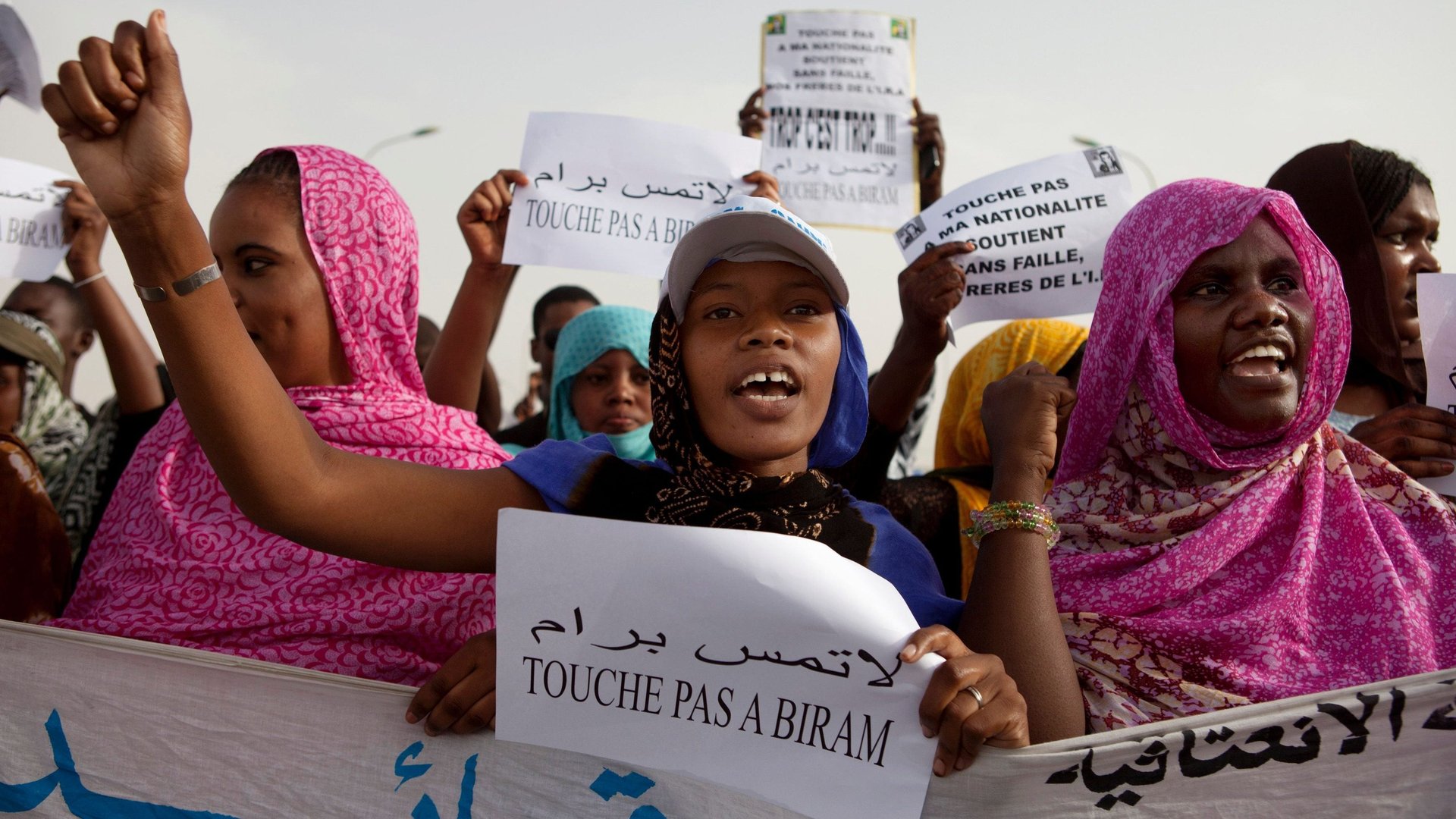Trump is cutting Mauritania’s US trade benefits because it still hasn’t stopped slavery
The continuing practice of forced labour in Mauritania is starting to come at a heavy cost.


The continuing practice of forced labour in Mauritania is starting to come at a heavy cost.
US president Donald Trump will end Mauritania’s trade benefits under the African Growth and Opportunity Act (AGOA) at the start of next year, the US trade representative’s office has announced. The decision comes following an annual review of eligibility for AGOA which permits duty-free trade for certain goods. Mauritania, the trade office says, does not meet the requirement for trade benefits as it has not made enough progress to end forced labour.
Mauritania’s slow moving process of abolishing the practice of slavery has also been echoed by the African Union. In January, the body ruled that Mauritania has not adequately enforced its anti-slavery laws and also hands out lenient sentences to slave owners. Despite becoming the world’s last country to abolish slavery in 2007, an estimated 90,000 of Mauritania’s 4 million citizens still live in modern slavery conditions.
The west African country ranks sixth out of 167 in the Global Slavery Index and is also known for jailing anti-slavery activists. Slavery is culturally ingrained in Mauritania where ethnic Haratins have been caught in a decades-long cycle of servitude.
To get its AGOA eligibility status and trade benefits restored, Mauritania, one of the world’s poorest countries, will have to “eradicate forced labour and hereditary slavery,” the US trade representative office says. It’s a condition that will likely be strongly considered by the country’s government given the high stakes: US imports from Mauritania totaled $61 million in 2017 up 22% from 2016. The top imports were mineral fuels, fish and fertilizers.
The Trump administration issued a partial AGOA suspension on exports from Rwanda earlier this year in a dispute over the east African country’s decision to raise tariffs on the import of secondhand clothes from the US. In retaliation the administration removed Rwanda’s privilege to export duty-free clothing to the United States.
Trump has received a lot of criticism for his derogatory comments in private about African countries while also targeted removing more African migrants, particularly those from muslim-majority countries. But in focusing on Mauritania his administration is in line with African leadership which has pressured Mauritania on the slavery question over the last decade.